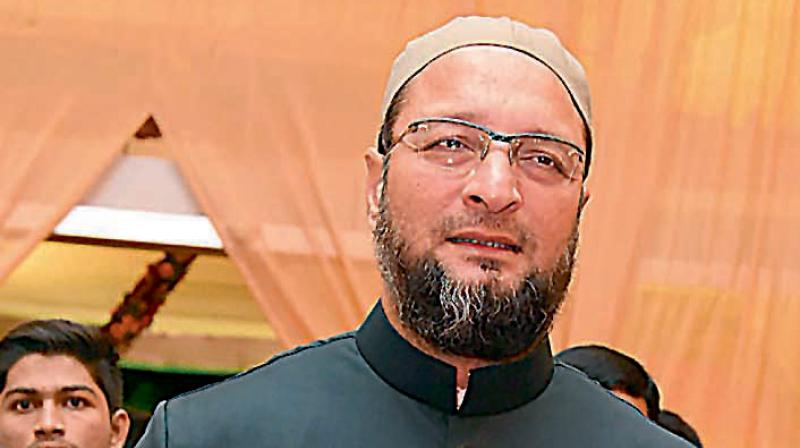Asaduddin Owaisi accepts Hyderabad blasts verdict, asks about other cases

Hyderabad: While saying that the court verdict in Dilsukhnagar bomb blast case must be accepted and terrorists should be punished, MIM president Asaduddin Owaisi on Tuesday accused the National Investigation Agency of targeting a particular community. An NIA special court had on Monday sentenced five Indian Muhajideen activists including co-founder Yasin Bhatkal for the 2013 blasts in which 18 persons were killed.
Speaking to the press at his residence in the city, Mr Owaisi said the NIA should a take uniform approach in terror cases irrespective of the communities of the accused. He said he was not doubting the NIA’s investigation in the Dilsukhnagar bomb blast case and stated that the agency had done a good job.
He questioned why the NIA, which had completed its investigation and trial of the Dilsukhnagar case in three years, had not shown the same involvement with the investigation into the bomb blasts at Mecca Masjid, Ajmer and Malegaon. He asked why the NIA had not filed an appeal against the bail granted to Swami Aseemanand, accused in the Mecca Masjid and Ajmer bomb blast cases, and why it had allowed the 90-day appeal period to last. He asked why the NIA had told the court that it had no objection in releasing Sadhvi Pragya Thakur in the Ajmer bomb blast case.
Earlier, in a series of tweets, Mr Owaisi said: “Why can't our investigation agencies show same urgency to convict all alleged terrorist cases and demolition of Babri Masjid case pending since 1992 (sic).” “Do not be surprised the way NIA is pursuing those bomb blast cases where accused are non-Muslims they will be exonerated because of Ache Din (sic)?” he tweeted.
“Dilsukhnagar bomb blast accused can be convicted in 3 years why is NIA taking long to convict Mecca Masjid, Ajmer and Malegaon. Can NIA throw some light (sic)?” he asked on his Twitter handle. "Dilsukhnagar Blast accused all get conviction. Then Mecca Masjid blast, Ajmer Dargah blast, Malegaon blasts will NIA get conviction these cases (sic),” he wrote.

